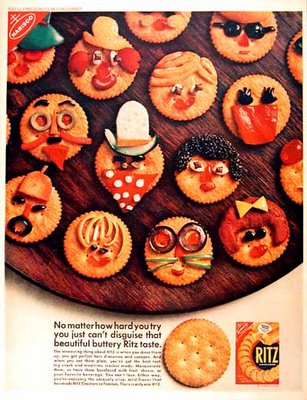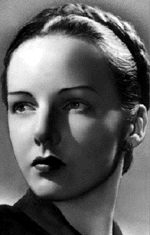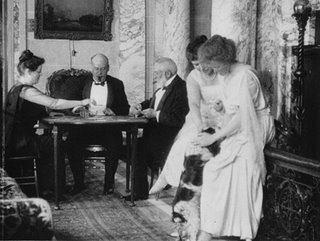
Acocella: Hey, does anyone know what's really so bad about being poor? I mean, what would motivate someone to just pull themselves up by the bootstraps and become a fairly obnoxious media icon?
Lemann: I've argued it's the lack of appetizers. Or, at least, that's what Bill O'Reilly suggested. I was a little skeptical, but then, I've never had the soup of the day circa 1965.
Acocella: Thanks! I really couldn't get my head around this one. Appetizers! My god, that's it.
***
You know that perplexing problem of Bill O'Reilly's class resentment and the soup of the day that I mentioned last week? Well, I didn't quote the following, but the following immediately preceeded the soup thought in Lemann's article for the March 27 issue of the New Yorker:
" 'When our family went out to eat, a rare treat, we didn’t waste money on appetizers, if only because we didn’t go to the kind of restaurants that offered appetizers. Typically the pasta dish was spaghetti, and that was it. No linguine, fettuccine, rigatoni, etceterini, etceterini, to confuse the issue.'
[Then follows] I never saw Nassau County, Long Island, where O’Reilly, who is fifty-six, grew up, in the nineteen-sixties, but I’m guessing that restaurants so unpretentious that they wouldn’t serve a soup-of-the-day didn’t actually exist. Still, the idea of such a restaurant captures O’Reilly’s idea of himself."
So it's unclear if the unclear reference to the soup, per se, is O'Reilly's or Lemann's. But O'Reilly does explicitly mention appetizers. Maybe Lemann conflates soup of the day (which might, after all, have come free with the meal) with appetizers.
But in any case, this is odd because . . .
Joan Acocella mentions appetizers, again, in her review of "Six Decades of Centerfolds" in the March 20 issue. After noting that Hugh's bachelor fantasy, as outlined in the first issue of Playboy, includes appetizers, jazz and Nietzsche, she writes,
"Whatever one may think of DeDe Lind's interest in Nietzsche - or Hefner's for that matter - this was the scenario he had in mind. [the fantasy, above, or the following?] He grew up in a comfortless Chicago family. His father was an accountant, his mother a Methodist disciplinarian. He has said that there was never any show of affection in his house. One suspsects that there was likewise little evidence of jazz or hors d'oeuvres - pleasure for its own sake. This is what he set out to sell: an upscale hedonism, promoted by the magazines articles and ads as well as by its nudes." (146)
Bear in mind that nihilists have historically referred to the consumption of snacks and alcoholic bevereges before the meal as "The Happy Hour." "A little garden, figs, little cheeses and in addition three or four good friends -- these were the sensual pleasures of Epicurus." From Human, All too Human. Actually, Nietzsche on Epicurus is complicated, contradictory and angry, but that sort of goes with the territory.
Here's an outline.And yes, I am reading the article in last week's issue, on measuring poverty and consumption.
Categories: newyorker, food


 I've been visiting The Family Boccigalupe and this what they think:
I've been visiting The Family Boccigalupe and this what they think: Acocella: Hey, does anyone know what's really so bad about being poor? I mean, what would motivate someone to just pull themselves up by the bootstraps and become a fairly obnoxious media icon?
Acocella: Hey, does anyone know what's really so bad about being poor? I mean, what would motivate someone to just pull themselves up by the bootstraps and become a fairly obnoxious media icon?